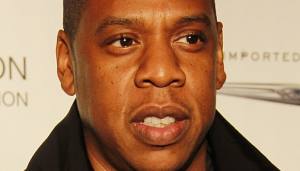Famous Cannabis Entrepreneurs Care About Money AND Social Justice
These companies are setting the stage for responsible entrepreneurship.

Jay-Z (by Joella Marano / Jorge Barrios, via Wikimedia / Creative Commons)
The growing legalization of cannabis has attracted many celebrities to this flourishing and lucrative market. Yet, two of these personalities have shown their commitment to the cannabis industry extends beyond money. Shawn “Jay-Z” Carter and Dwayne Carter Jr., better known as “Lil Wayne,” recently launched social justice programs that are setting the stage for responsible entrepreneurship.
Jay-Z’s Bold Campaign Against National Drug Policy

Is The Future Of Law Distributed? Lessons From The Tech Adoption Curve
In 2019, Jay-Z entered the world of cannabis by partnering with California cannabis company Caliva to develop MONOGRAM, a premium-priced luxury marijuana line that features $40 to $70 hand-rolled joints.
But Jay-Z is more than a billionaire entrepreneur who develops brands and business strategy, he also leads MONOGRAM’s social justice program, which recently launched a bold nationwide awareness campaign that challenges cannabis laws and denounces their disproportionate and devastating impact on communities of color.
The campaign consists, in part, of billboards and digital series featuring provoking factual headlines set against the backdrop of the portraits of eight individuals who have been negatively affected by the War on Drugs/Marijuana. The campaign also aims to show how archaic these regulations are by comparing them to immoral and depraved actions, such as cannibalism, which remain legal in certain states. Examples of MONOGRAM’s bold campaign messages include:
- “Weed is a federal crime. Even in the states where sex with farm animals isn’t.”
- “The legal term for bribing a politician is often called lobbying. The legal term for possession of weed is often called felony.”
- “You can marry your first cousin in more states than you can buy recreational weed.”
- “The war on drugs worked. If systemic racism was the goal.”
Sponsored

Navigating Financial Success by Avoiding Common Pitfalls and Maximizing Firm Performance

The Business Case For AI At Your Law Firm


Early Adopters Of Legal AI Gaining Competitive Edge In Marketplace

Early Adopters Of Legal AI Gaining Competitive Edge In Marketplace
Beyond high-impact static visuals, MONOGRAM also announced it would introduce visual testimonials from its eight featured individuals, sharing their personal journey through excessive punishment for cannabis offenses and discussing ways in which these unfair practices have irreversibly damaged their lives.
Through this social justice campaign, MONOGRAM aims to magnify the hypocrisy of existing cannabis legislation, which for nearly 45 years have unduly targeted and punished communities of colors. Since the 1970s, the enforcement of marijuana possession laws has been carried out with staggering racial bias. According to a 2020 report published by the ACLU, nearly half of all drug arrests made in 2010 were for marijuana possession. Although marijuana use was roughly the same among Blacks and whites, Blacks were 3.64 times more likely to be arrested for marijuana possession.
In addition to bringing the relationship between marijuana prohibition and racial injustice into national spotlight, MONOGRAM is also working on reversing course in this disastrous and racist War on Drugs/Marijuana. The company has funded a $10 million social equity ventures program that will provide Black and other minority entrepreneurs equal opportunity for participation in the legal cannabis industry.
Lil Wayne ‘Shares the Love’ and Money with Cannabis Reform Nonprofit
Like Jay-Z, Lil Wayne launched his cannabis company, GKUA Ultra Premium, in 2019, which offers a line of high-potency marijuana products but also contributes to social justice reforms.
Sponsored

Legal AI: 3 Steps Law Firms Should Take Now

Is The Future Of Law Distributed? Lessons From The Tech Adoption Curve
In February, GKUA partnered with Last Prisoner Project, a nonprofit organization dedicated to cannabis criminal justice reforms, to bring about awareness to the thousands of people incarcerated for nonviolent cannabis offenses through the “Share the Love” social campaign.
To support Last Prison Project’s initiatives, GKUA pledged to donate $1 to the organization for every Instagram user who shared a photo of themselves or of loved ones enjoying cannabis on the social media platform between February 12 and February 14.
Whether one approves of MONOGRAM and GKUA’s bold and thought-provoking campaigns, no one can deny that these companies are setting the stage for responsible entrepreneurship. They are bravely taking the lead in correcting and redressing the wrongs against Black and other minority groups by investing resources in these marginalized communities and providing them with an opportunity to reclaim their place in an industry built on their backs. Now one can only hope that these remarkable initiatives will inspire other cannabis entrepreneurs (including white entrepreneurs) to join and participate in these social justice and cannabis reform efforts.
Nathalie practices out of Harris Bricken’s Portland office and focuses on the regulatory framework of hemp-derived CBD (“hemp CBD”) products. She is an authority on FDA enforcement, Food, Drug & Cosmetic Act and other laws and regulations surrounding hemp and hemp CBD products. She also advises domestic and international clients on the sale, distribution, marketing, labeling, importation and exportation of these products. Nathalie frequently speaks on these issues and has made national media appearances, including on NPR’s Marketplace. For two consecutive years, Nathalie has been selected as a “Rising Star” by Super Lawyers Magazine, an honor bestowed on only 2.5% of eligible Oregon attorneys. Nathalie is also a regular contributor to her firm’s Canna Law Blog.







